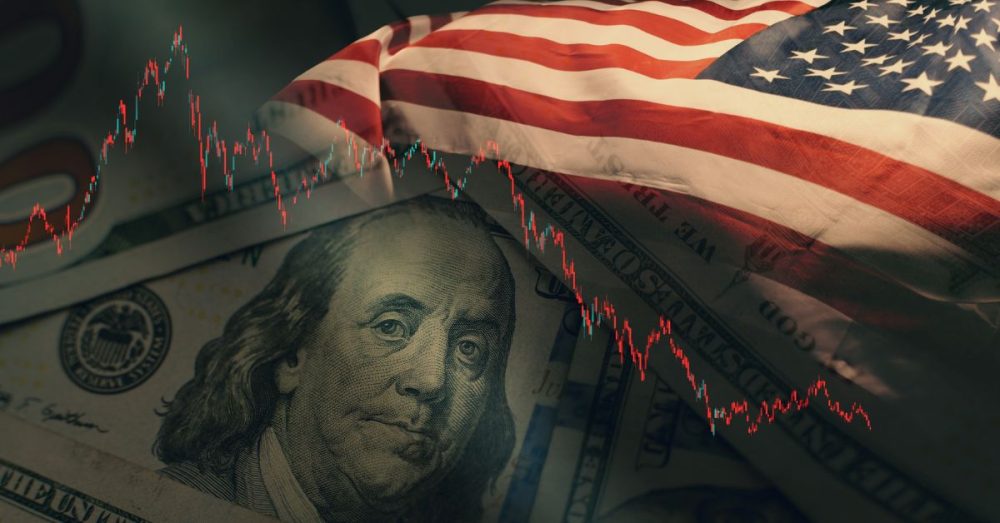As tensions heat up on Wall Street, Americans wonder if a market meltdown is coming.
Following the stock exchange’s nosedive on August 5, economists fear what, if anything, will right the market’s course. Some anticipate an impending recession, noting that the Federal Reserve might intervene by implementing a significant change to the benchmark interest rate. Other economists wonder how the presidential election will impact policymakers.
ZeroHedge stated that financial experts suggest we could be heading to a potential recession or even a depression. According to Goldman Sachs economists, the chances of a U.S. recession within the next year have risen from 15 percent to 25 percent.
So, what tips and key considerations do Americans need to be thinking about if a recession comes?
Here is more of what ZeroHedge had to report on as we move closer to a potential recession :
U.S. Bureau of Labor Statistics data showed that employers hired 114,000 workers last month, far less than the bureau’s projections of 185,000 jobs. Meanwhile, the unemployment rate has increased to 4.3 percent reaching its highest point since October 2021.
Japan’s main Nikkei 225 stock index experienced a dramatic decline of more than 12 percent, marking its worst trading day since the Black Monday crash of 1987.
This significant drop reflects broader concerns about the global economy and has contributed to the overall market turmoil. Financial analysts say these are indicators that a recession, if not a depression, is possible.
On Sunday, Goldman Sachs economists increased the likelihood of a U.S. recession from 15 percent to 25 percent in the upcoming year.
The Epoch Times talked with several financial experts who provided tips on navigating a potential recession.
They suggested that individuals can better navigate economic downturns by diversifying investments, building an emergency fund, paying down high-interest debt, and maintaining a long-term focus. Also, avoiding risky financial behaviors and ensuring adequate insurance coverage will protect your financial well-being during uncertain times.
Be Informed About Global and Domestic Financial Affairs
Evaluating your financial situation in relation to the economic markets is crucial in preparing for a recession, said Bill Dendy, a seasoned financial strategist and founder of Alicorn Investment Management, Inc., based in Dallas, Texas.He also advised that people should consider the stability of their jobs and industries—if you risk losing your job, start looking for additional income sources and update your resume.
Dendy told The Epoch Times that many factors constantly affect the financial markets—and currently the potential of war between Israel and Iran, a low jobs report, and the November election are all playing a role.
In times of economic downturn, Dendy suggests paying attention to what you can control, such as prioritizing essential costs and cutting back on non-essential spending.
“Keeping abreast of economic trends and being prepared to adjust financial strategies is vital,” Dendy said. “Individuals must create and adhere to a strict budget to help manage expenses more effectively.”
An example of financial awareness can be seen in the recent move by billionaire Warren Buffett, the legendary investor and CEO of Berkshire Hathaway, he said.
Berkshire Hathaway recently sold nearly half of its stake in Apple, reducing its holding to $84.2 billion by the end of the second quarter. This move is notable given Apple’s status prior as Berkshire’s most significant stock investment. The sale has meant an increase in the company’s cash hoard to a record $276.94 billion.
“It’s critical to keep an eye on the markets,” Dendy said. “The window for fixed-income investors may be closing. Most of all, talk with an advisor.”


